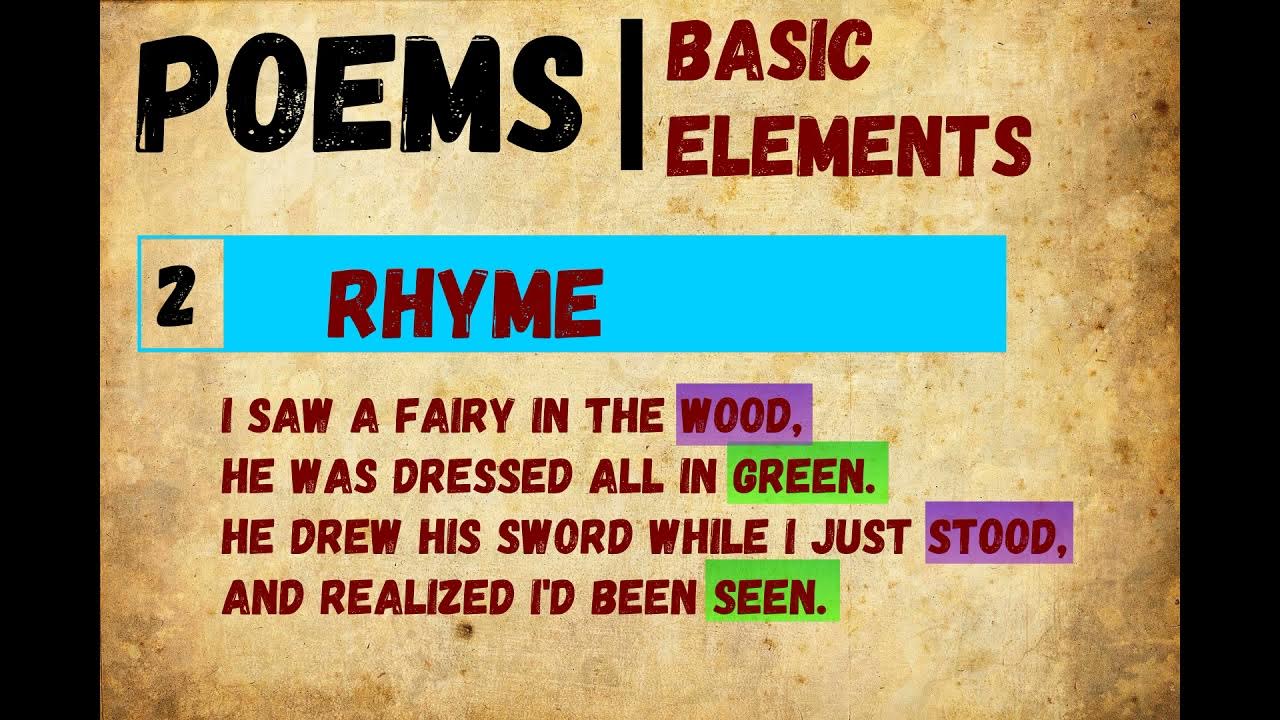What Is Prose ?
Summary
TLDRThe transcript delves into the essence of prose in literature, highlighting its importance and distinction from poetry. Prose, derived from Arabic, originally meant 'spreading nonsense,' and is characterized by its freedom from poetic constraints like rhyme and meter. It aims for clear and accurate expression of thoughts and feelings, with sentences forming the basic unit of its structure. The development of prose is linked to the advent of writing and the evolution of written language. The transcript also lists various literary forms that utilize prose, such as short stories, novels, essays, and plays, emphasizing its versatility and prevalence in literary expression.
Takeaways
- 📚 Prose is a fundamental topic in literature that is widely studied and discussed.
- 🤔 The term 'prose' originates from Arabic and historically had a connotation of 'spreading nonsense'.
- 📖 Prose is characterized by its adherence to language rules without the constraints of rhyme or meter.
- 📝 The goal of prose is to express thoughts and feelings clearly and accurately.
- 📚 Literary prose has developed various forms of expression to enhance the effectiveness of narration.
- 📝 The smallest unit of expression in prose is a sentence, which is organized into paragraphs.
- 📜 The development of prose is linked to the availability of writing and the evolution of written language.
- 📚 English literature's first prose examples are found in the post-writing periods.
- 📚 Prose encompasses a variety of literary forms, including short stories, novels, theater, essays, and more.
- 📚 Prose is often contrasted with poetry, with the latter being structured by formal qualities like rhyme and meter.
- 📚 Old prose is categorized into 'plain prose' and 'fancy prose', indicating different styles of expression.
Q & A
What is the definition of prose according to the transcript?
-Prose is a way of expression in which only the rules of language are observed, without conditions such as rhyme or meter, and is used to express thoughts or feelings clearly and accurately.
What is the origin of the word 'prose'?
-The word 'prose' has an Arabic origin and means 'spreading, distributing nonsense'.
How were prose writers and their works referred to in ancient times?
-In ancient times, prose writers were called 'nasir', articles with a prose form were called 'mensur', and small pieces of prose were referred to as 'mensure'.
What is the relationship between the development of prose and the availability of writing?
-The development of prose is linked to the availability of writing and the development of the written language, as it allows for the expression of thoughts in a form that is not restricted by the need for memorization.
What are the main types of literature written in prose format?
-The main types of literature written in prose format include short stories, novels, theater, letters, travelogues, essays, biographies, criticisms, diaries, memoirs, and discourses.
How is prose different from poetry in terms of expression?
-Prose differs from poetry in that it does not depend on formal qualities such as rhyme or meter and is expressed in a flat and free form, focusing on clear and accurate communication of thoughts and feelings.
What are the two main branches of old prose mentioned in the transcript?
-The two main branches of old prose are 'plain prose' and 'fancy prose'.
What is the significance of prose in literature?
-Prose holds an extremely important place in literature as it is a versatile form of expression that covers all literary forms other than poetry, allowing for a wide range of narrative techniques and styles.
What is the smallest unit of expression in prose?
-The smallest unit of expression in prose is a sentence, which can be judicial in nature or declaring an action, and are organized into paragraphs following a certain plan.
How does the transcript describe the use of 'construction' in Divan literature?
-In Divan literature, the term 'construction' is preferred over 'prose', indicating a specific preference or style in that literary tradition.
What is the role of nazm in the context of literary expression before writing?
-Nazm, or poetry, was used as the main form of literary expression before writing because it was easy to remember and memorize due to its structured rules, making it a preferred method for oral tradition.
Outlines

Этот раздел доступен только подписчикам платных тарифов. Пожалуйста, перейдите на платный тариф для доступа.
Перейти на платный тарифMindmap

Этот раздел доступен только подписчикам платных тарифов. Пожалуйста, перейдите на платный тариф для доступа.
Перейти на платный тарифKeywords

Этот раздел доступен только подписчикам платных тарифов. Пожалуйста, перейдите на платный тариф для доступа.
Перейти на платный тарифHighlights

Этот раздел доступен только подписчикам платных тарифов. Пожалуйста, перейдите на платный тариф для доступа.
Перейти на платный тарифTranscripts

Этот раздел доступен только подписчикам платных тарифов. Пожалуйста, перейдите на платный тариф для доступа.
Перейти на платный тариф5.0 / 5 (0 votes)






